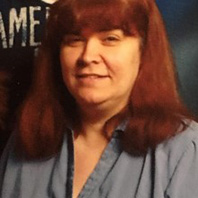Power of Attorney & Advance Directives in End-of-Life Planning

Discussions involving end-of-life topics, such as living wills, advance directives, and power of attorney (POA), can be difficult. However, failing to act now could limit your loved one’s ability to protect your healthcare and financial interests. Fortunately, legal tools, such as POA and advance directives, can give your designated loved ones the ability to act on your behalf. This guide explains how POAs and advance directives work.
Key Takeaways
- A power of attorney (POA) allows designated caregivers to make medical or financial decisions, depending on the terms of the document, for a loved one who is no longer able to do so.
- Advance directives ensure your wishes about medical treatment are carried out even if you are unable to communicate them.
- A person must be competent and of sound mind to complete POA and advance directive documents.
What is a Power of Attorney (POA)?
A power of attorney (POA) is a legal document that allows you, referred to as the principal, to give a trusted loved one, referred to as the agent, the authority to act on your behalf when you cannot.[1] It’s important to have a POA in place before the need arises so your designated agent can take immediate action should something happen to you.
What Are Different Types of Power of Attorney?
There are several types of power of attorney documents, including:
- Durable POA. A durable POA gives the agent authority as soon as the documents are signed.
- Springing POA. A springing POA doesn’t come into effect until a licensed physician declares the person incapacitated.
- Health care POA. A healthcare POA gives a designated caregiver the authority to make medical decisions for a person if they cannot do so.
- Financial POA. As the name suggests, a financial power of attorney gives the agent the authority to handle the principal’s finances if they are unable to do so.
What is an Advance Directive?
An advance directive is a legal document explaining the type of medical treatment you do or do not want to have if you cannot communicate your wishes. These directives cover various types of treatment used to prolong life, such as CPR, feeding tubes, ventilators, dialysis, and surgery.
Using Power of Attorney and Advance Directives in Caregiving
Caregiver responsibilities often include scheduling medical appointments, medication management, and making medical decisions. Legal tools, such as a power of attorney and advance directives, make this easier in situations where a loved one has dementia, Alzheimer’s disease, a chronic illness, or injuries caused by an accident.
How to Get Started on Advance Care Planning for You or a Loved One
It’s best to start end-of-life planning as soon as possible. “People don’t like to think about end-of-life planning,” says attorney Carina Jenkins, “but once a person’s health or mental capacity declines, creating these documents can be difficult. Having planning documents in place can ease the burden on family during a difficult time.” Here are some steps to get you started.
Start the Conversation
If you’re creating a POA or advance directives for yourself, talk to your family, especially your designated agent, and express your healthcare and financial wishes. This representative may make decisions for you if you’re unable to, so it’s important that they know what you would want.
Gather the Right Documents
Next, gather the proper documents. Your healthcare provider and financial institution may have the documents you need, but you can also find these forms online. These documents vary by state, but they’re often found on state government websites.
Get the Proper Signatures
At the very least, POA and advance directive documents must be signed by the principal and one or two witnesses.
Seek Legal Counsel
It’s recommended that you seek legal counsel from an estate planning attorney to ensure that these forms are completed correctly and that everything is in place.
Common FAQs About POA & Advance Directives
There are several ways to get a POA form, such as hospitals, physician’s offices, financial institutions, community centers, and third-party online vendors.
A living will details the types of medical treatment you want medical professionals to provide if you cannot communicate your wishes. On the other hand, a POA grants another party, the agent, the power to make healthcare decisions on your behalf.
POA documents are only valid while the person is alive. These powers cease to exist immediately after the person passes away. A will can be drafted at the same time as a POA to address who will have certain legal responsibilities after a person passes.
If the person is already incapacitated before the POA documents are signed, you may need to petition the court for conservatorship or guardianship to obtain these rights.
The person creating the POA can change the designated agent at any time, as long as they’re of sound mind. Additionally, if abuse, neglect, or some form of fraud is suspected, the courts can revoke an agent’s POA authority.
The legal requirements for advance directives vary from state to state. All states require these documents to include at least one witness signature, and some require notarized documents.
An advance directive directly impacts the medical treatment you receive. Once this document is in place, medical professionals, including doctors, nurses, and EMT staff, are legally bound to comply with your wishes in most cases.
You can get an advance directive form from several places, including your healthcare provider, attorney, or online.
Start Advance Care Planning Today
Don’t wait until it’s too late to establish a power of attorney (POA) and advance directives. Get peace of mind with advance care planning so you know that your wishes will be adhered to if you can’t advocate for yourself.

Written by Elaine Mercer
Elaine Mercer holds a degree in Business Administration with a minor in Accounting. Her background includes work as a fiscal analyst and HR manager for midsize organizations. While she maintains a diverse writing portfolio that touches on most major industries, she specializes in business management, personal finances and HR-related topics. She has a knack for researching complex topics and turning this material into easy-to-understand, digestible content that keeps readers engaged, sparks interest and prompts action.

Edited by Katelynne Shepard
Katelynne Shepard is a writer, editor and SME who is proficient at crafting and reviewing content. She has been a full-time copywriter and editor since 2011 and has written content for Fortune 500 companies, independent law firms, indie publishers, small-business owners and mainstream websites. She specializes in parenting, lifestyle, family law, personal injury, criminal law, immigration law, astrology, personal finance, education and health care. In addition to thousands of e-commerce product and category descriptions, Verle's work includes SEO blogs, social media posts and long-form informational articles.
Sources
Consumer Financial Protection Bureau. (n.d.). What is a power of attorney (POA)? Sourced from https://www.consumerfinance.gov/ask-cfpb/what-is-a-power-of-attorney-poa-en-1149/